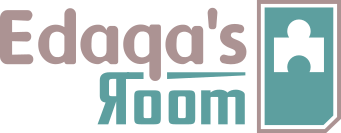
A game mechanic that requires comparing qualities to find matches.
Matching is a common game mechanic where a player must match shapes, colours, sounds, functions or any qualities of the puzzle pieces. It serves to connect pieces of a puzzle together, aiding in further mechanics or leading to further clues.
A simple escape game example is putting coloured pots on a stove with coloured elements. This type of matching would typically be combined with additional mechanics, such as needed to find the pots, and perhaps their colour is only visible under certain lighting conditions.
Matching is frequently used to connect to disjoint pieces in a larger puzzle. The trivial example would be a crossword, where the clues are numbered, and there are numbered spaces on the board. This is the same fundamental mechanic as using geo-coordinates to find locations as a map, perhaps as the basis to a tracing puzzle. Or it may be a series of pictures that a player has to locate in their environment.
Pieces need to match based on one or more of their qualities.
Matching is strongly related to association. Whereas association is about knowing multiple puzzle pieces work together, matching is about the mechanic that actually relates the pieces, in particular when its a key aspect of the puzzle.
For example, say a player has to find several ornate keys in a room and place them correctly on a key-rack at the front-desk of a hotel. The player will need to find the keys in a room, and they can assume they are associated, as part of a set, because they are all keys, and all ornate. They can further associate them with the key-rack as it has a similar ornate frame around it. Now that the player has collected the pieces, they must place individual keys on the right key hook; perhaps by a number, or occupant name. Figuring out which key belongs where is the matching mechanic.
If you have any questions, need an example, or want clarification, then let me know. Ask on Discord or Twitter.
Assume everything in this reference is a working draft, there's prone to be some mistakes and inconsistencies. I figure it's best to publish and get feedback rather than write for years in secret. The terms will change, the structure will shift, and the bugs will be chased out. It'll take a while.